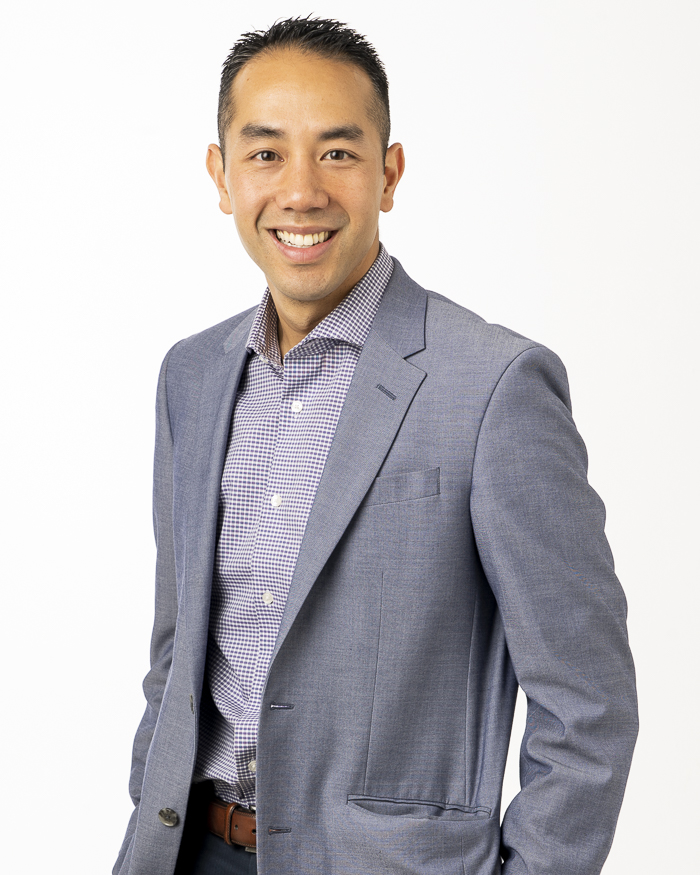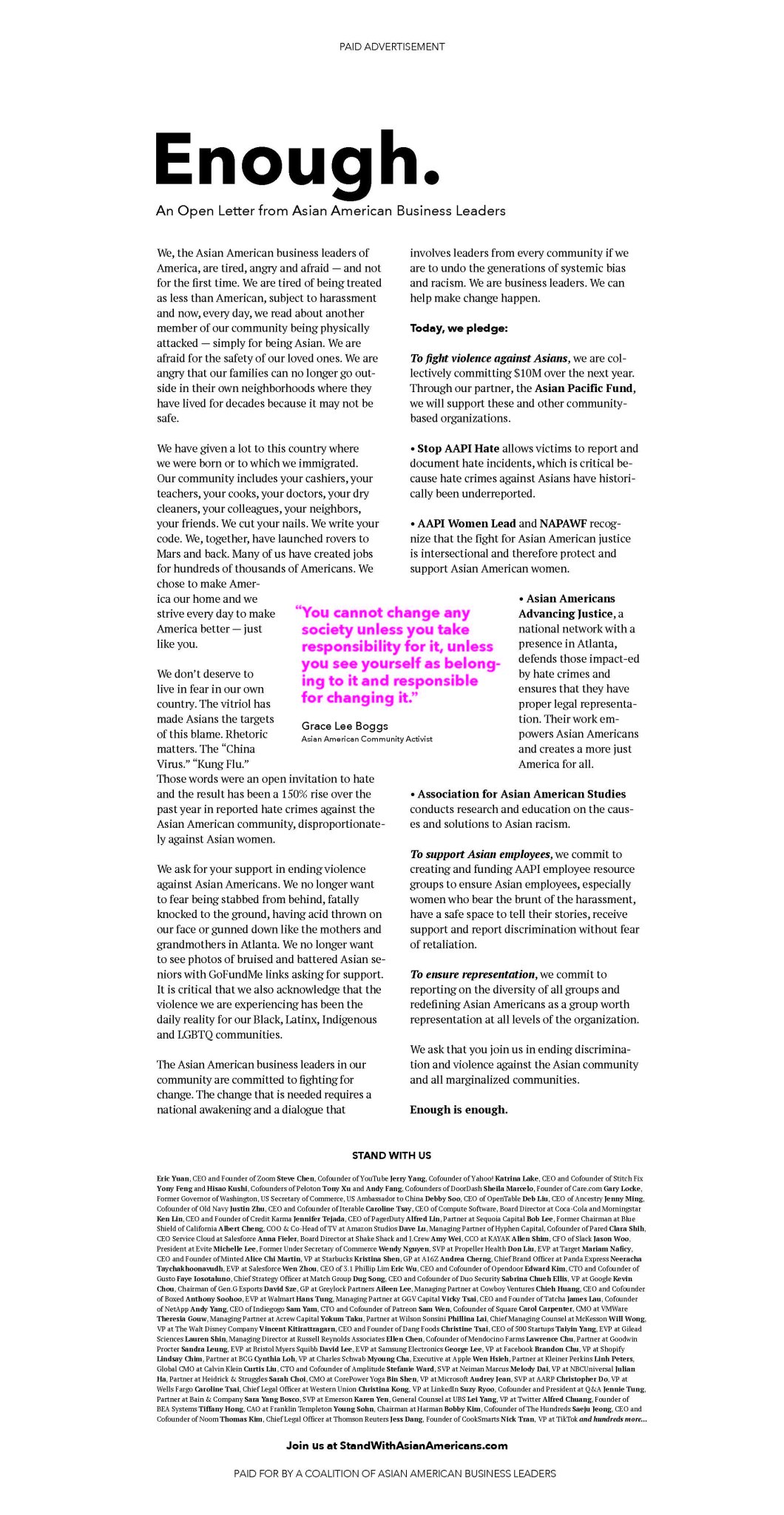
On March 16th, 8 victims were tragically killed in a series of shootings within Atlanta-area massage parlors. While the arrested culprit was denying any form of racial motivation, it was noted that six of the deceased victims were of Asian descent. The Atlanta chapter of the Asian Americans Advancing Justice organization stated that although “the details of the shootings are still emerging, the broader context cannot be ignored.” The March shootings weren’t an outlier and are just the latest to come in over 3800 reported incidents of anti-Asian hate nationwide. Following the mass-shooting was a series of ongoing rallies, where groups like the Answer Coalition try to spread awareness on race-motivated attacks. Some speakers within these demonstrations have expressed how their businesses have been impacted, due to threats or actual vandalism occurring to their retail shops. It’s still undecided on what federal legislation or political change will be implemented to combat the anti-Asian sentiment, but areas like New York City are already drawing up new approaches. Dermot Shea, the New York City Police Commissioner, has mentioned the two-pronged plan where a new task force will provide more outreach to Asian communities and increase enforce on hate crimes. I reached out to Jimmy Tran, a former Corporate Executive at a Fortune 500 company who currently spends his time as a Husband, Father, Investor and Small Business Owner.
The New York City Police Department has actively ramped up patrols in predominately Asian communities, including the Flushing and Chinatown neighborhoods of Queens, New York. Is there any pieces of legislation or policies that you think can be applied to tackle hate crimes?
While I do not think that we can legislate our way out of attacks against Asian Americans, I do feel like there is a role for legislation. Specifically, I know that President Biden is looking at initiatives to coordinate policies and directives that support Asian Americans and Pacific Islanders (AAPI). Asian Americans are one of the fastest growing demographic groups in the United States and given the diversity within the broad “Asian American” moniker, I think we need to fund and support programs that lift up AAPI communities.
I would be remiss if I did not recognize that there are many minority and under-represented groups within the broad Asian American umbrella…. these include Native Hawaiian and Pacific Islander communities, and historically under-represented groups such as those from Laotian, Hmong, Cambodian, Vietnamese, Bangladeshi and Bhutanese ancestry (just to name a few). Household income, college-going rates, health, and other outcomes are far worse for these groups compared to Asian Americans as a whole. I think that the Asian minority myth has hurt our community because it presents our community as one solid group when we are in fact made of many sub-groups. We need to recognize that our communities are ethnically and culturally different if we are serious about change. Then we need to start allocating resources to support initiatives that help the most vulnerable within our broad community.
Margaret Chin is the author of “Why Asian Americans Don’t Reach the Top of the Corporate Ladder” and has interviewed 103 second-generation Asian Americans who commonly speak of the “bamboo ceiling” in their workplaces. These interviewees feel crowded in technical fields and state that they’re not given opportunities in C-suite roles. What factors in our society lead to this discrepancy and have you experienced any setbacks in your career due to this “bamboo ceiling”?
As a former executive in Corporate America, I can generally say that this is true in more “traditional” industries such as Real Estate, Insurance, and Banking. If you look at the C-suite of most companies, it is generally male dominated and most of these males are Caucasian. This is a fact, but I can also validate this through personal experience. I have been in many Boardrooms where I was the sole Asian person and given that I look younger than my actual age, I always questioned whether I belonged “at the table.” Imposter syndrome is real, and the truth of the matter is that Asian American leaders are often isolated in specific silos such as Technology, Supply Chain or Finance. It is rare to see Asian Americans take on a major leadership role within a core functional area… especially in more traditional industries.
That said, I think there is a rising and new group of Asian American leaders who are leading and/or starting companies ranging from Zoom to Yahoo to Google. This is evidenced by a recent national paid ad by a coalition of Asian American business leaders organized by Dave Lu. It was astounding to me to see the list of names here because clearly Asian leaders exist across numerous industries – they have just largely been silent until now. You can read more at https://standwithasianamericans.com/. For reference, the ad is also pasted below.

President Biden has authorized the Department of Health and Human Services to allocate over $49 million towards a program for survivors of domestic violence who face additional struggles like language access barriers. Are there any ongoing disparities that you think disproportionately affect Asian-Americans?
I am in full support of funding for AAPI survivors of domestic violence and sexual assault. The fact is that Asian Americans have historically been silent on issues of violence and abuse, but it is a major issue that runs rampant in Asian American communities. I personally know that it is a taboo within certain Asian communities for victims of domestic violence to speak up, but it is time for this to change. We need to support those that have been victimized and create pathways for them to recover and rebuild their lives.
Regarding victims of sexual assault, I think the Atlanta shootings have unmasked a fetish and sexualization of Asian women that American society has been reluctant or resistant to acknowledge. For generations, Asian American women have been mistreated and verbally and/or physically assaulted in America. Simply put, Asian American women are targeted in a way that Caucasian women are not – I only realized this after reading some very personal accounts from Asian friends/acquaintances that spoke up after the Atlanta shootings. We must recognize that this is happening and then create avenues for these victims of sexual assault to seek justice and recovery from their trauma.
A recent story illustrated Mohammad Anwar, a 66 year-old Uber Eats driver, who was tragically killed in a carjacking on March 30th. Is there any way to support Asian entrepreneurs, freelancers, and business owners who might feel endangered in the current climate?
As an Asian American small business owner, one very simple thing we can do is support our locally owned businesses, specifically those that are Asian owned. These span from donut shops to nail salons to massage establishments to restaurants. On the restaurant front, please beware of those that mask themselves as “Asian” yet are funded, operated, and marketed by non-Asian communities. As if this were not enough, some of these non-Asian-owned businesses are outright hostile toward Asian communities! In Dallas, there was a recent incident of a very prominent and high-end restauranteur who operates a Vietnamese restaurant (himself a non-Asian) who publicly mocked and harassed Asian Americans. This is not right and all of us need to call these things out when they happen! And of course, Asian American business owners are now physically and financially vulnerable so and you can help them by supporting their businesses and getting to know them – not as Asians but as Americans. We’re in this together and our collective aspirations are much more similar than they are different.